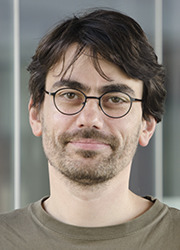will take place on Tuesday, May 9, 2017 from 17:15 to 18:15 hours in CBBM Building, EG, Room B1/B2.
Host: Prof. Dr. Sören Krach
Department of Psychiatry und Psychotherapy
University of Lübeck
Abstract
Value based decision-making is a basic and fundamental mechanism for successful interaction with the environment and multiple competing systems including Pavlovian, habit and goal-directed systems govern such decisions. Alterations in those basic learning mechanisms and their underlying neurobiological processes are important features in the development and maintenance of psychiatric conditions such as addiction or schizophrenia. Reinforcement learning offers the possibility to mechanistically describe these processes by combining computational description of behavior and underlying neural activation using multimodal imaging. In addiction Pavlovian drug-associated cues can induce drug-taking and relapse behavior and a loss of control over drug-intake can be understood as a shift away from goal-directed towards habitual control. In psychosis alterations in prediction error signaling potentially due to a dysregulation of the dopaminergic system have been associated with aberrant salience attribution and can thus contribute to the development of psychotic experience. Reinforcement learning is a central topic of the emerging field of Computational Psychiatry which offers holds the promise to advance our understanding of psychiatric disorders and contribute to a more mechanistically defined disease classification.
Biosketch
PD Dr. med. Florian Schlagenhauf studied medicine and philosophy at the Heinrich Heine University Düsseldorf. He completed his specialist training in Psychiatry and Psychotherapy at the Charité-Universitätsmedizin in Berlin. Since 2012 he is group leader at the Max Planck Institute for Human Cognitive and Brain Science in Leipzig and at the Charité. In his works he uses multimodal functional imaging in combination with computational methods to describe learning and memory alterations in psychiatric diseases with a focus on schizophrenia and addiction.


